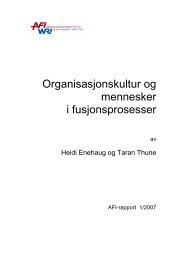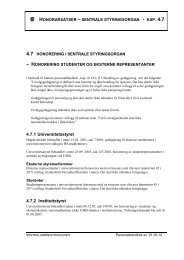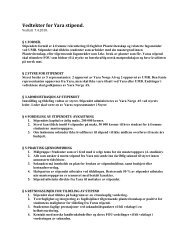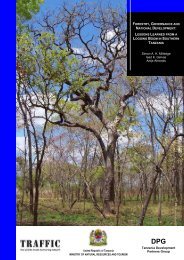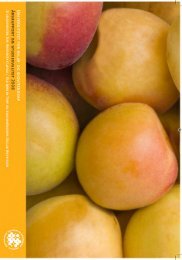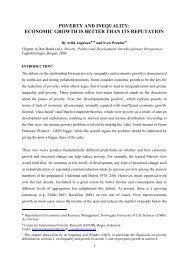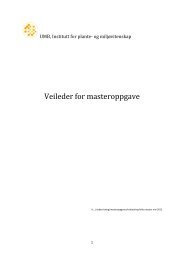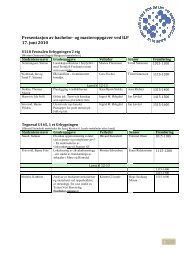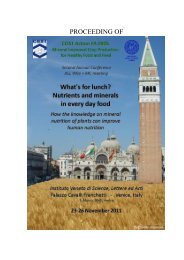Sustaining Livelihoods through Organic Agriculture in Tanzania - UMB
Sustaining Livelihoods through Organic Agriculture in Tanzania - UMB
Sustaining Livelihoods through Organic Agriculture in Tanzania - UMB
You also want an ePaper? Increase the reach of your titles
YUMPU automatically turns print PDFs into web optimized ePapers that Google loves.
2.2 Classification systems of organic agriculture<br />
<strong>Organic</strong> agriculture can be differentiated from traditional, modern and other types of<br />
susta<strong>in</strong>able agriculture by the standards and guidel<strong>in</strong>es that def<strong>in</strong>e and regulate it. As a<br />
type of alternative agriculture, organic agriculture belongs to a large family of related<br />
approaches to farm<strong>in</strong>g that attempt ‘to provide susta<strong>in</strong>ed yields <strong>through</strong> the use of<br />
ecologically-sound management technologies’ (Altieri, 1987: xix). Certified organic<br />
agriculture may be further dist<strong>in</strong>guished from non-certified organic or agroecological<br />
production which meets organic production standards but is not subject to organic<br />
<strong>in</strong>spection, certification and labell<strong>in</strong>g (IFOAM, 2004).<br />
A classification system has been proposed <strong>in</strong> order to better understand the vast range<br />
of different types of organic agriculture (see diagram below).<br />
Classification of <strong>Organic</strong> <strong>Agriculture</strong><br />
Susta<strong>in</strong>able <strong>Agriculture</strong><br />
Certified organic Non-certified Integrated Production<br />
organic agroforestry, low-external <strong>in</strong>put,<br />
permaculture, conservation agriculture,<br />
eco-farm<strong>in</strong>g etc.<br />
Commodity focus Community focus<br />
Individual Catchments Groups / co-operatives<br />
Out-growers<br />
(contract farm<strong>in</strong>g)<br />
Source: After Hauser, 2005<br />
Even further variation <strong>in</strong> organic systems can be recognised with reference to the<br />
typology of organic farm<strong>in</strong>g shown below.<br />
In this study organic agriculture refers to the conscious use of organic agricultural<br />
techniques, both <strong>in</strong> certified and non-certified systems. However, there is a bias<br />
towards projects that have achieved certification status and/or are under conversion<br />
s<strong>in</strong>ce these are the most explicitly “organic” <strong>in</strong>itiatives and therefore provide clear<br />
examples of how this holistic farm management system is be<strong>in</strong>g implemented on the<br />
ground.<br />
10




